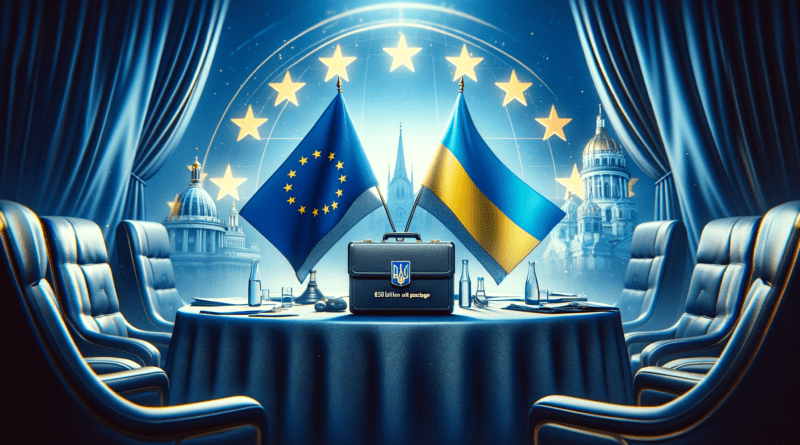European Heads of State Unanimously Back Monumental €50 Billion Aid Package for Ukraine, Overcoming Internal Hurdles
In a display of swift diplomacy and unity, European heads of state have unanimously endorsed a groundbreaking €50 billion support package to bolster Ukraine amidst its ongoing challenges. This pivotal decision, marking a significant stride in European solidarity, was sealed during an extraordinary summit in Brussels, with the financial uplift for Ukraine taking center stage in the discussions.
The pact, known as the Ukraine Facility, is a blend of €33 billion in loans and €17 billion in grants. It’s set to be released progressively from 2024 to 2027, subject to Ukraine fulfilling structural reforms. These reforms encompass enhancements in public administration, governance quality, judicial integrity, and staunch measures against corruption and fraud.
The approval of the Ukraine Facility comes as part of a comprehensive €64.6-billion revision of the EU’s unified budget. This revision introduces additional allocations, including €9.6 billion for migration and border control, €1.5 billion for state-of-the-art technologies, €1.5 billion for emergency aid, and a €2 billion contingency fund for unexpected crises.
Charles Michel, the President of the European Council, heralded this agreement on social media, emphasizing the EU’s commitment to providing steadfast, predictable, and substantial support to Ukraine. This move underscores the EU’s leadership and responsibility in standing with Ukraine during these trying times.
The journey to this consensus was not without its challenges. Viktor Orbán, the Hungarian Prime Minister, had been a singular force in obstructing the flow of new funds to Kyiv. His stance was in response to the EU’s freeze on nearly €22 billion in cohesion and recovery funds due to Hungary’s continuous rule-of-law issues. Orbán’s resistance was seen as a strategic maneuver to retain leverage over the EU and a reflection of his frequent anti-EU rhetoric.
However, the deadlock was broken in a pre-summit meeting involving key European leaders and Viktor Orbán. Notably, Italian Prime Minister Giorgia Meloni emerged as a pivotal mediator, leveraging her evolving stance from Euroscepticism to a more nuanced engagement with EU affairs.
Following the agreement, European leaders took to social media to celebrate this milestone, emphasizing the preservation of European unity and solidarity. Ursula von der Leyen, the President of the European Commission, termed it “a good day for Europe.” From Kyiv, President Volodymyr Zelenskyy expressed gratitude, noting the decision’s significance in reinforcing EU unity and its support for Ukraine’s long-term economic and financial stability, alongside military aid and sanctions against Russia.
This decision sets the stage for formal negotiations between the Council and the European Parliament, expected to proceed swiftly, reflecting the urgent need to channel support to Ukraine.
As the EU takes this significant step in supporting Ukraine, it’s vital to recognize that this article offers a news perspective and should not be interpreted as financial advice.

